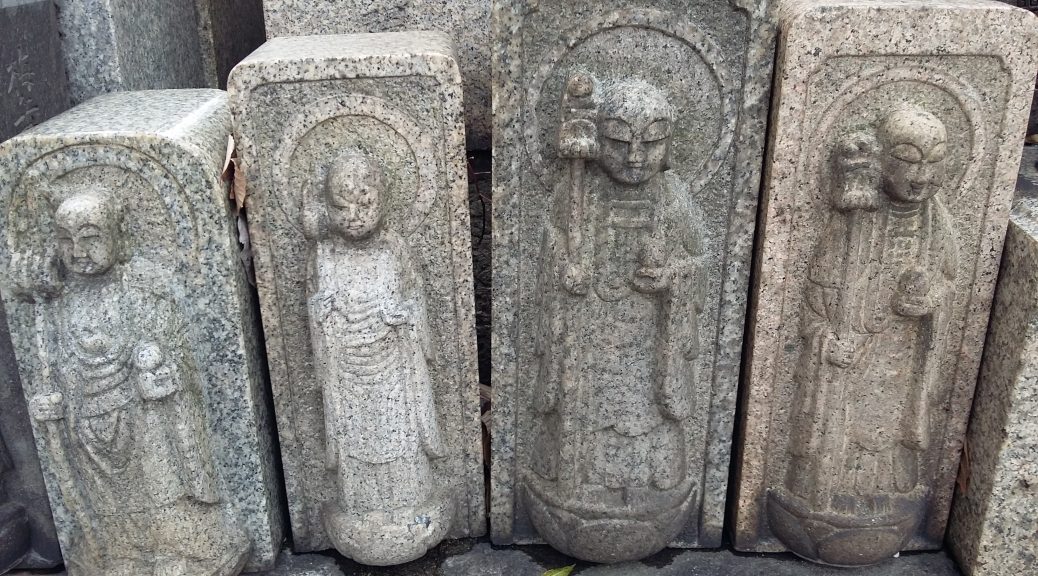Some of the best philosophers are bears: Introducing Mawson Bear

Today I have an extra special Christmas treat as I welcome Mawson Bear to my website. Mawson is a shy and retiring bear of generous proportions, with a fancy for dapper bow ties. Ever since he can remember, he’s loved to sit atop a cushion and ponder about this often baffling world. Friends approach him about their own dilemmas. They seek instant answers that will make everything all right. Mawson does his best but he often just falls asleep and wakes as baffled as ever. But he’s always confident, down in his innermost stuffing, that the world is a bright place to be. Mawson likes to share his ponders by plonking them into little books for others to enjoy.
Mawson is the proud author of It’s a bright world to feel lost in, published by Publisher Obscura. This is a beautiful philosophical book in the vein of The blue day book by Bradley Trevor Grieve. It is the perfect sort of book to buy as a stocking stuffer or Kris Kringle for someone who likes to muse about life, and who hasn’t lost their sense of whimsy. Mawson has another book coming out very soon, She ran away from love
Which writer or writers opened your eyes to the magic of storytelling and why?
When young I devoured books by many authors but when it comes to the magic they brought me, I will list those by C.S Lewis (Narnia), Issac Asimov (Sci Fi), and Rosemary Sutcliffe (historical fiction).
Like most readers, what I sought was to be transported from this world. With these writers I could be in Norman England winning back a castle during a school break, in the woods of Narnia on a rainy Sunday, or fleeing rogue robots during a long car ride.
Why do you think people need stories in their lives?
A life is a story. We wonder about our personal stories all the time: ‘What if I had been born in Carthage, or had gone to a school for wizards, or could be a colonist of Mars? What if I had stood up to that bully, stepped through the back of that Wardrobe, been kidnapped by pirates, chosen another lover?’ Many of us, having re-read our own pages up to now, then strive to change – re-write – our future chapters. But still we keep wondering: is this the best we can do? The stories we absorb from other people fascinate us. They entertain and enthral us as we learn in a safe way about the consequences and circumstances of the choices made by other people, real and fictional. Stories reassure most of us, I think, that after all has been said and done, our personal modest lives are really just fine. Being fragile creatures though, and constantly craving reassurance, we turn back again and again to the power of stories.
What is your greatest magical power as a writer?
Shyly he says, ‘I listen to the bears’.
Poets, actors, composers, painters, ‘artistic people’, all speak reluctantly about the heart of creativity. They proffer vague expressions like ‘feeling inspired’, ‘being guided’, ‘trusting the muse’, ‘entering into the role’. What does this mean? I think it’s about listening for ‘something’. Now, this ‘something’ cannot not be analysed or modelled on a flow chart. It’s very shy, and it needs to trust you to respect it. I think the greatest magical power of a writer is to gently –don’t startle it –gently reach out for this ‘something’, gain it’s trust; and then to let characters and story flow on from there.
I listen to my bears. I never know when I’ll hear in a voice as quiet as can be imagined the best ponders framed in the best words; and these are ideas and words that I myself did not have in mind, really I didn’t. When I don’t listen but just grind on, my writing is not right: the voice feels wrong, the images don’t flow, and it is not satisfying.
Which mythic archetype or magical character most resonates with you and why?
Naturally my bear Mawson’s esteemed peers and forebears come to mind: Pooh, Paddington, Calvin’s tiger Hobbes.
What themes or ideas do you find keep arising in your writing?
 Long ago, I wanted to take the sort of advice that can be found in the Self-Esteem and Motivation style of books, which I read but often found to be a bit too earnest, even precious, and to present the ideas I thought most helpful as light hearted axioms with pictures. This plan did not get far. Instead the ‘something’ I am listening to keeps taking me back back to the sad times that every bear (or person) sits through. In their different ways, each of my bears becomes convinced that their particular shape and stuffing and being-ness is not enough. They seek and quest for some other way to Be One’s Best.
Long ago, I wanted to take the sort of advice that can be found in the Self-Esteem and Motivation style of books, which I read but often found to be a bit too earnest, even precious, and to present the ideas I thought most helpful as light hearted axioms with pictures. This plan did not get far. Instead the ‘something’ I am listening to keeps taking me back back to the sad times that every bear (or person) sits through. In their different ways, each of my bears becomes convinced that their particular shape and stuffing and being-ness is not enough. They seek and quest for some other way to Be One’s Best.
* * * * * * * * * * * * * * * * * * * * *
To purchase a copy of Mawson’s gentle ponderings, or get news about upcoming books, the best place to start is his website, here. Mawson’s book will delight you.
 Artists, whether writers, painters, sculptors or any other medium, are generally not paid well. This has been true throughout history. We know the image of the struggling writer starving in a garret so well it is almost a cliche. And the painterly genius who died in poverty. It’s part of the story we tell about artists. To create true art, the idea goes, we need suffering. Hunger is apparently a great motivator.
Artists, whether writers, painters, sculptors or any other medium, are generally not paid well. This has been true throughout history. We know the image of the struggling writer starving in a garret so well it is almost a cliche. And the painterly genius who died in poverty. It’s part of the story we tell about artists. To create true art, the idea goes, we need suffering. Hunger is apparently a great motivator. There have always been gatekeepers to the creative arts. These were once known as patrons. Now they have many different titles but they are always the ones who decide whether artists will be paid for their work or not. And since the ‘economy’ narrative places a low value on art, the gatekeepers don’t feel the need to pay them very much. In fact, the unspoken argument is often that artists do what they do for the love of it, so reimbursement doesn’t need to be that high. Their reward is the joy of creating. There is a growing trend of asking creatives to produce something for ‘exposure’ or so they can ‘put it on their CV’.
There have always been gatekeepers to the creative arts. These were once known as patrons. Now they have many different titles but they are always the ones who decide whether artists will be paid for their work or not. And since the ‘economy’ narrative places a low value on art, the gatekeepers don’t feel the need to pay them very much. In fact, the unspoken argument is often that artists do what they do for the love of it, so reimbursement doesn’t need to be that high. Their reward is the joy of creating. There is a growing trend of asking creatives to produce something for ‘exposure’ or so they can ‘put it on their CV’.
 Then, in the final book, I had to draw it all together. That’s been an interesting process. In the end I made myself a list with lots of instructions. “Make sure you …” “This has to happen …” I needed resolutions not just for the overall story, but for things like romances and individual character arcs. And even working from that list, I’m pretty sure I’ve missed something. So my next step will be to read all three books from beginning to end, making notes as I go. Finding all the threads that I think need resolving. It won’t end there either. After the rewrites, I’ll give the Pierrot’s Song to beta-readers, and I’m sure they’ll tell me if I’ve missed something that needs resolution that I’ve missed.
Then, in the final book, I had to draw it all together. That’s been an interesting process. In the end I made myself a list with lots of instructions. “Make sure you …” “This has to happen …” I needed resolutions not just for the overall story, but for things like romances and individual character arcs. And even working from that list, I’m pretty sure I’ve missed something. So my next step will be to read all three books from beginning to end, making notes as I go. Finding all the threads that I think need resolving. It won’t end there either. After the rewrites, I’ll give the Pierrot’s Song to beta-readers, and I’m sure they’ll tell me if I’ve missed something that needs resolution that I’ve missed. My very special guest today is Kate Forsyth, named one of Australia’s Favourite 15 Novelists. Kate is the author of 40 books for adults and children. Her most recent works re-imagine loved fairy tales. The Beast’s Garden sets Beauty and the Beast in Nazi Germany. Beauty in Thorns takes Sleeping Beauty into the world of the pre-Raphaelites. But writing is only the beginning. Kate is a storyteller and runs magical writing retreats in the Cotswalds, England. She also co-hosts
My very special guest today is Kate Forsyth, named one of Australia’s Favourite 15 Novelists. Kate is the author of 40 books for adults and children. Her most recent works re-imagine loved fairy tales. The Beast’s Garden sets Beauty and the Beast in Nazi Germany. Beauty in Thorns takes Sleeping Beauty into the world of the pre-Raphaelites. But writing is only the beginning. Kate is a storyteller and runs magical writing retreats in the Cotswalds, England. She also co-hosts  Which mythic archetype or magical character most resonates with you and why?
Which mythic archetype or magical character most resonates with you and why?


 I first met Lauren Chater in 2015 at the Historical Novel Society of Australasia inaugural conference. She had entered their ‘First Pages’ contest, and I read out a portion of her debut novel, The Lace Weaver, to a very appreciative audience. Lauren went on to win the contest and this year The Lace Weaver was published by Simon and Schuster. It has been described as heartbreaking and poignant. You can read more about Lauren and her books at her
I first met Lauren Chater in 2015 at the Historical Novel Society of Australasia inaugural conference. She had entered their ‘First Pages’ contest, and I read out a portion of her debut novel, The Lace Weaver, to a very appreciative audience. Lauren went on to win the contest and this year The Lace Weaver was published by Simon and Schuster. It has been described as heartbreaking and poignant. You can read more about Lauren and her books at her 
 * * * * * *
* * * * * * Diet
Diet A very special blog post today as I interview historical fiction writer, dear friend and mentor-extraordinaire, Wendy Dunn. Wendy has been obsessed by Anne Boleyn and Tudor History since she was ten-years-old. She is the author of three Tudor novels: Dear Heart, How Like You This?, the winner of the 2003 Glyph Fiction Award and 2004 runner up in the Eric Hoffer Award for Commercial Fiction; The Light in the Labyrinth, her first young adult novel, and Falling Pomegranate Seeds, the first book in a series about Catalina (Catherine) of Aragon. To read more about Wendy and her books, click here to visit her
A very special blog post today as I interview historical fiction writer, dear friend and mentor-extraordinaire, Wendy Dunn. Wendy has been obsessed by Anne Boleyn and Tudor History since she was ten-years-old. She is the author of three Tudor novels: Dear Heart, How Like You This?, the winner of the 2003 Glyph Fiction Award and 2004 runner up in the Eric Hoffer Award for Commercial Fiction; The Light in the Labyrinth, her first young adult novel, and Falling Pomegranate Seeds, the first book in a series about Catalina (Catherine) of Aragon. To read more about Wendy and her books, click here to visit her  Letting go, breaking the circle of the past, the sorrow of unrequited love, the power of forgiveness and the search for identity. Completing my PhD in 2014 also opened my eyes to the fact that my works can be explicated through Feminist Standpoint Theory.
Letting go, breaking the circle of the past, the sorrow of unrequited love, the power of forgiveness and the search for identity. Completing my PhD in 2014 also opened my eyes to the fact that my works can be explicated through Feminist Standpoint Theory. During the Great Depression, Shirley Temple movies were hugely popular. People were living in terrible poverty, but for 15 cents they could see a movie that would lift them out of their life for a while. Roosevelt said of Temple, “As long as our country has Shirley Temple, we will be all right”. Sure it was escapism, but it made a difference. It kept peoples’ spirits up. Stories can make us feel good too. They can give us a moment where we’re not weighed down. A story requires forward movement – something has to happen. Otherwise it’s not a story, it’s just a description. Such momentum can remind you of the possibility of change.
During the Great Depression, Shirley Temple movies were hugely popular. People were living in terrible poverty, but for 15 cents they could see a movie that would lift them out of their life for a while. Roosevelt said of Temple, “As long as our country has Shirley Temple, we will be all right”. Sure it was escapism, but it made a difference. It kept peoples’ spirits up. Stories can make us feel good too. They can give us a moment where we’re not weighed down. A story requires forward movement – something has to happen. Otherwise it’s not a story, it’s just a description. Such momentum can remind you of the possibility of change.